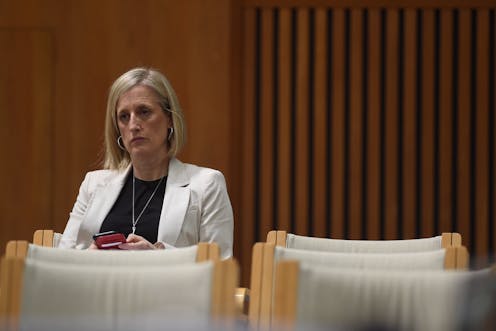Near enough may not be good enough as parliament's dual citizenship crisis deepens
- Written by Lorraine Finlay, Lecturer in Law, Murdoch University

Over the past five months, a growing of numbers MPs elected at the 2016 federal election have either been disqualified or resigned from parliament because of dual citizenship issues.
This extraordinary chain of events started back in July with the resignation of Greens senator Scott Ludlam. It looks set to continue into 2018, after the publication of citizenship registries revealed several more MPs have serious dual citizenship questions to answer.
Further reading: New blow for Labor as David Feeney hits citizenship hurdle
Among those likely to be referred to the High Court are several senators and MPs whose citizenship declarations show they were technically still dual citizens when nominations closed before the 2016 federal election, but who claim they had personally taken all reasonable steps to renounce their dual citizenship before that date.
This group includes Labor’s Katy Gallagher (who has been referred to the High Court already), Justine Keay, Susan Lamb and Josh Wilson, and the Nick Xenophon Team’s Rebekha Sharkie.
All reasonable steps?
Several of these MPs have received legal advice suggesting they will not be disqualified under Section 44 of the Constitution because they had taken all reasonable steps to renounce their dual citizenship before nominating as an election candidate.
For example, all appear to have completed their renunciation paperwork and paid the required fee before nominating, but were waiting on the British Home Office to register the renunciation. They did not receive formal confirmation of their renunciation until after the election.
Under British law, citizenship does not cease until the secretary of state actually registers the declaration of renunciation.
In order for someone personally taking “all reasonable steps” to be eligible – in circumstances where that renunciation has not actually been accepted – the High Court would need to take a flexible view of Section 44’s wording.
The court has never been asked to directly consider this precise set of circumstances before, so nobody can be entirely sure what it would find. But given the strict reading of Section 44 adopted in recent cases, it would not be surprising if these five MPs were all found to be disqualified.
In the case of the “Citizenship Seven”, the court unanimously found that the dual citizenship provision is “cast in peremptory terms”. This means it sets out a definite obligation in clear and certain words.
While the court found there would be cases where someone who had taken “all reasonable steps” to renounce dual citizenship would not be disqualified, this was not a test of general application. Rather, it was a specific exception that applied where the law of a foreign country prevented someone from renouncing their foreign citizenship, or made it unreasonably difficult for them to do so.
This was based on the constitutional imperative that an Australian citizen should not:
… be irremediably prevented by foreign law from participation in representative government.
Further reading: The High Court sticks to the letter of the law on the ‘citizenship seven’
None of the five MPs mentioned above were “irremediably prevented” from renouncing. Instead, they had failed to do so in enough time to have the renunciation registered before the required date. So, it is difficult to see the court accepting that the British renunciation procedures were so unreasonable that they amounted to someone being “irremediably prevented”.
Taking this approach, the only fact that will matter is that these MPs were all still actually dual citizens at the time of nomination. On this basis, they would all be disqualified.
To escape disqualification, they will need the court to extend the “all reasonable steps” exception to every case of dual citizenship. It is open to the court to do this, but the recent decisions in relation to both the Citizenship Seven and Hollie Hughes suggest a stricter approach.
Further reading: High Court strikes again – knocking out Hollie Hughes as replacement senator
This means it is entirely possible that Gallagher, Keay, Lamb, Wilson and Sharkie will all be declared ineligible. At the very least, there is a real question to be answered about their eligibility.
That it has taken more than five months and a compulsory declaration procedure for this to come to light reflects extremely badly on these MPs.
Previous ineligibility
The citizenship registers have also revealed that there are several MPs who were eligible at the time of the 2016 federal election but who appear to have had dual citizenship issues for at least part of a previous parliamentary term. This includes Greens senator Nick McKim, Labor senators Alex Gallacher, Louise Pratt and Lisa Singh, and Liberal senator Dean Smith.
Since they relate only to previous parliamentary terms, none of these cases will be referred to the High Court. However, these MPs’ conduct should not escape criticism.
Again, that it has taken more than five months and a compulsory declaration procedure for these cases to come to light is highly disappointing.
The real issue here isn’t one of dual citizenship, but rather the honesty and integrity of our MPs. The dual citizenship issue is likely to be fixed in the future through greater candidate awareness and political parties undertaking stricter vetting processes. The loss of trust between the Australian people and their MPs is much harder to fix.
Authors: Lorraine Finlay, Lecturer in Law, Murdoch University





